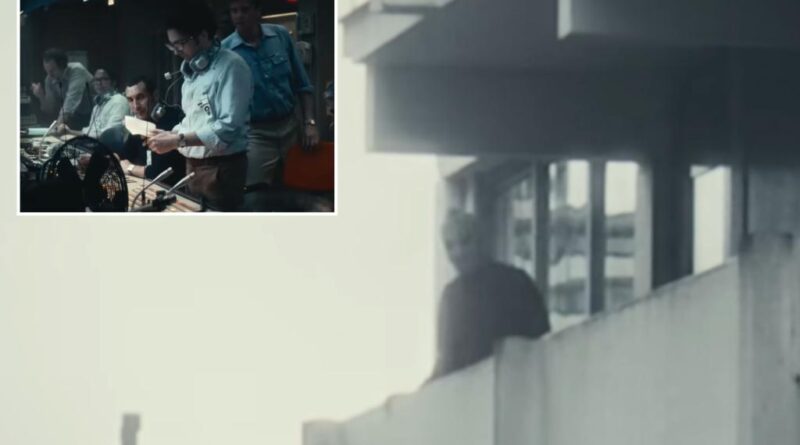New Film Portrays the Harrowing Reality of the 1972 Munich Olympics Terror Attack
If you’re in the mood for a film that captures the essence of the Palestinian terrorism that has unfolded over the past fifty years, make your way to the theater to watch “September 5.”
This concise release from Paramount delves into the 1972 Munich Olympics massacre of Israeli athletes, presenting a refreshingly straightforward perspective: Kidnapping and killing innocent people is unequivocally wrong, and there is no justification for such acts.
The film’s strength lies in its lack of ideology.
We witness the unfolding of the Munich terror attack through the lens of ABC Sports journalists—skilled professionals covering the Games prior to the attack but lacking the expertise of foreign-policy commentators.
When Geoffrey Mason (played by actor John Magaro), the rookie producer for ABC, hears gunfire erupt near the athletes’ accommodation at dawn, their response reflects the natural shock and confusion typical of a time when reporters did not automatically associate global events with terror threats.
As the terrorists emerge from the seized Israeli athletes’ apartment, the American reporters instinctively label them as villains.
Curiously, there is no backstory provided to rationalize the terrorists’ actions and no narratives of alleged Israeli oppression.
Fully masked, the terrorists wield guns they have already used to murder wrestling coach Moshe Weinberg and weightlifter Yossef Romano. They exude an intimidating silence.
They don’t have a “side” to present, because in this portrayal, they lack any justification.

The horror of such inhumane actions is so apparent that no one thinks to even suggest there could be justification for it.
The sports team takes charge of the narrative, overcoming efforts by ABC News to take control.
Initially, the reporters face a dilemma: How should they refer to the assailants during the broadcast?
Choosing clarity over complexity, they label them as they are being called in Germany—terrorists.
The identity of the victims is equally clear, as the sports team creates a broadcast poster featuring the photos and biographies of the nine remaining Israeli hostages.
Over the decades, we’ve witnessed numerous portrayals of victims of Islamist terror, including those lost during 9/11 and more recently, Oct. 7. Yet here, the impact stems from the freshness of the event.
Another shocking feature of terror incidents that catches the inexperienced reporters off guard is government incompetence.
The Munich Olympics aimed to showcase a modernized and progressive Germany, yet the attack took place due to poor security arrangements, as officials were reluctant to allow images of armed German soldiers to be broadcasted.
Part of the failure also stemmed from a post-war naiveté—there was a prevalent belief that such violence couldn’t occur.
This was an era before stringent security measures at events; athletes could easily open doors for unknown individuals.
When the government finally takes decisive action, the film implies their motives are less than pure.
By agreeing to the terrorists’ request to transport the hostages to an airstrip for an escape to Cairo, they also shift the bloody incident away from the concentrated media spotlight of the Olympic venue.
Furthermore, maintaining the option to continue the Games later on was a factor in not evacuating the entire athletes’ village.
The ABC Sports team does falter, mistakenly broadcasting rumors—instigated by the German authorities—that all the hostages are safe.
Tragically, the attempted rescue at the Fürstenfeldbruck military base fails and the terrorists end up killing all nine hostages.
Sportscaster Jim McKay somberly updates viewers using archival footage: “They’re all gone.”
This error highlights a profound unfamiliarity with evil; the reporters are unable to grasp the possibility of such a devastating loss for the Israelis.
America was accustomed to resolutions that ended on a high note.
While the ABC team is unaware of the historical significance, we recognize that Sept. 5 lies between the conclusion of World War II, 27 years prior, and 9/11, which occurred 29 years later. Following that, two decades later, we experienced Oct. 7.
The strikingly new element of “September 5” is the sheer novelty of the situation for these sportscasters.
Over the past fifty years, we’ve grown all too accustomed to the unfathomable.
Nicole Gelinas is a contributing editor to the Manhattan Institute’s City Journal.



